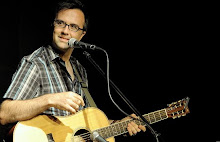I played a show/church service last night at Church of the Redeemer that consisted of nothing but Beatles songs. For the occasion I put together a band with some of my favourite musicians including Scott Christian, Greg Wyard, Joe Power and Nick Wyard, Beatles experts or acolytes all. We haven't played as a band for several months but with a few soundcheck screw-tightenings we were back at our capacity as a fully-functioning Beatles records reproduction machine.
Most of the songs required me to play electric guitar, something that is always a tone quandary for me when it comes to Beatles performances. Let me disclose now that I think of the Beatles as classical music, with really no irony. First of all, they were the best band in the best era of popular music in recent memory (though I think overall the 1920s were the best era in the 20th century for popular music), which is best attested by their continued strong popularity even as all other sixties megabands and solo artists have waned. Thus, their music should be reperformed as perfectly and as slavishly as possible, or ideally not at all. I remember being introduced to this idea waaay back in around '92 by the great drummer, producer and Beatles psycho Dave King. I couldn't understand why he, a huge Beatles fan, wouldn't want to play any Beatles songs in our bar trio of the time. It was because we were a trio and could never reproduce the two-guitar arrangements.
Back to my tone quandary. It consists in the fact that I don't have a proper Beatle guitar, for one thing. The approved guitars are, for John Lennon, a Rickenbacker 325
And those are just the basic arsenal of any self-respecting Beatles tribute. Good thing that I'm not doing a Beatles tribute - at least not in any way that would require the purchase of winkle pickers or a wig fitting. This wikipedia article goes into satisfying, torturous detail on the many models of guitars that the Beatles used less iconically. Even better is the coffee table labour-of-obsession Beatles Gear
My Beatles tone MO has been this: for acoustic guitar, a midrange boost in the PA to approximate the honkiness of John and George's ladder-braced Gibson J-160Es with flatwound strings (thanks to David Love for this tidbit). For electric guitar, I've settled on a Les Paul Junior copy that Brian Bennie built for me years ago. It has P-90 "soapbar" pickups and thus can supply a thick, midrangy signal to the compressor, which does the work of the tube mics and tube mixing board that the Beatles so loved to overload to breaking point. For early Beatles, a fuzztone does the job for "Paperback Writer", "Taxman" (guitar solo, played by Paul, is one, like "Stairway", that everyone should learn). For later Beatles, it's amp overdrive - Abbey Road and Let It Be are the sound of hard-driven Fender Deluxe (only 22 watts, a small club amp), so I use a Boss Blues Driver to approximate a light overdrive. Very early Beatles doesn't use tape overload and is in fact for the most part conventionally recorded early sixties pop. It's when I'm playing songs like "All My Loving" or "She Loves You" that I'm really glad that I have the super-clean Fender Twin amp. But let us turn our attention to one of the great Beatles guitar songs, "The Word," which we played last night:
"The Word" was, according to Lewisohn (p. 68) recorded on November 10, 1965 and mixed for mono and stereo the next day. By the third take it was in the perfect form in which we receive it. The guitar part consists of a chorus with repeated D7#9 chop (and subsequent similar blues progression) that foreshadows "Taxman," and a doubled low-string riff in the verses. Alan Pollack beautifully deconstructs the form and other musical aspects here. My hunch is that it's George on both parts, playing a Stratocaster (I could be completely wrong about this. To be more sure, I would need to consult the magisterial book boxset Recording The Beatles
All of this obsessiveness was reduced last night to the 'brown guitar' (the LP Special I mentioned earlier) and the Twin. I forgot the compressor at home, after all of that.












My guess is that "The Word" is John's 1964 Sonic Blue Strat through the Fender Deluxe. The Casino comes close to the tone but doesn't nail it.
ReplyDeleteI was using my Casino and a Deluxe last week for The White Album and that was pretty darn close to the tone.